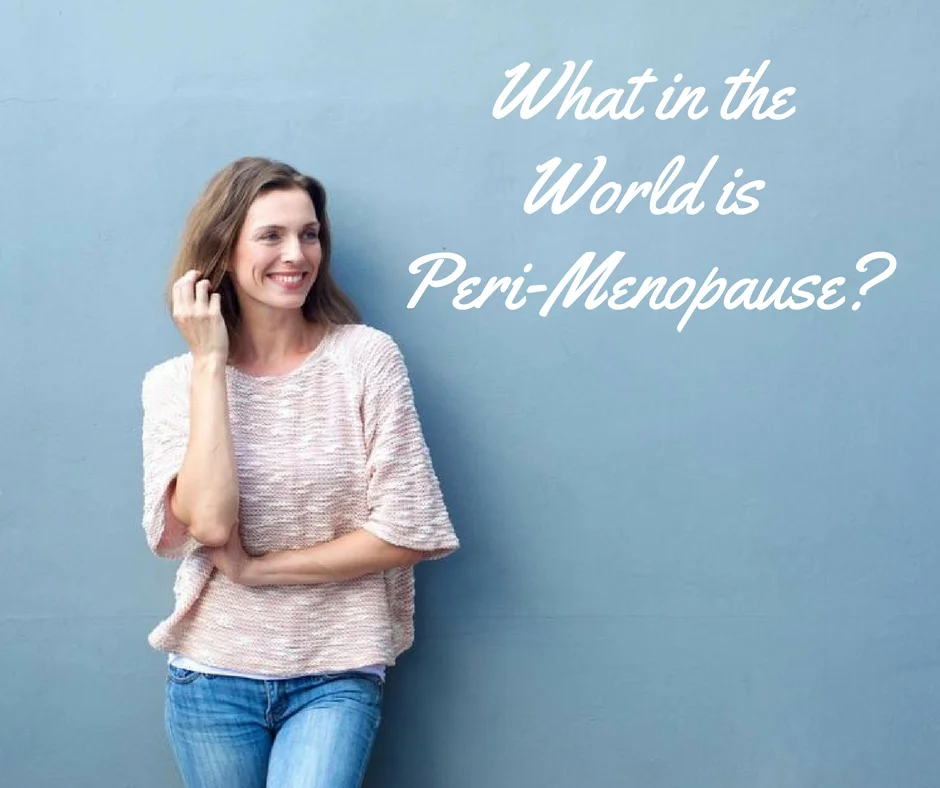What in the World is Peri-menopause?
If I were to ask 10 women on the street, “What is peri-menopause?,” I would probably get just 1 out of 10 who would know the answer, at best.
Peri-menopause is the about 10 year period before the full stopping of your period, called menopause. The stopping of your menstrual period doesn’t just come out of nowhere, it happens after a slow decline of ovarian function.
Your ovaries, the two little organs that shoot out an egg every month when you ovulate, come to life at puberty, and peak around 27 years of age. After that, their function starts to decline very gradually, and then much more rapidly.
If you recall your teenage years, you may remember having acne, mood swings and irregular periods. This was because your brain was learning to work with your newly active ovaries together.
At peri-menopause, you may also have hormonal symptoms, that could include:
Heavy periods
Early periods
Missed periods
Anxiety
Insomnia
Weight Gain
Forgetfulness
So why do the symptoms of peri-menopause happen?
Sadly, you can’t live forever, or make babies forever. Your genes are programmed to turn on your reproductive powers at puberty, and gradually fade them before menopause.
As you entered puberty, your ovaries started making estrogen, the dominant female hormone, like crazy. You grew breasts and hips and your periods may have been really intense.
You rode this nice estrogen high with gorgeous skin and a healthy sex drive in your 20s. But as you aged, your ovarian function declined and you made less estrogen, slowly.
Just like in puberty, the brain is trying its best to work with the ovaries at peri-menopause. Some months it's pushing them to work harder, and estrogen level go up. Other months estrogen levels are low. This is a normal aspect of peri-menopause, but it can result in symptoms.
Because the eggs in the ovaries aren't as prime in our older years, their function is less robust. This leads to less progesterone production, the hormone that is made after your ovulate, in the second half of your cycle. It is also normal that progesterone declines, but this change can again cause symptoms.
Here’s one last detail: you make a certain type of estrogen, estradiol, in your reproductive years. As you shift towards menopause, another type of estrogen, estrone, becomes dominant. But that shift is a little rough on your body, because it got used to using estradiol for many years.
You don’t have to be a victim of your changing hormones. Once you get to know your hormones and what they need, you can be the hero in your own hormone story.
Stayed tuned for information on how to best take care of yourself in these years to avoid symptoms as much as possible!
Bridgit Danner is at the author of this article and the founder of Women's Wellness Collaborative.
She designed a private, collaborative coaching service exclusively for women which utilizes the accuracy of functional medicine for outstanding results.


